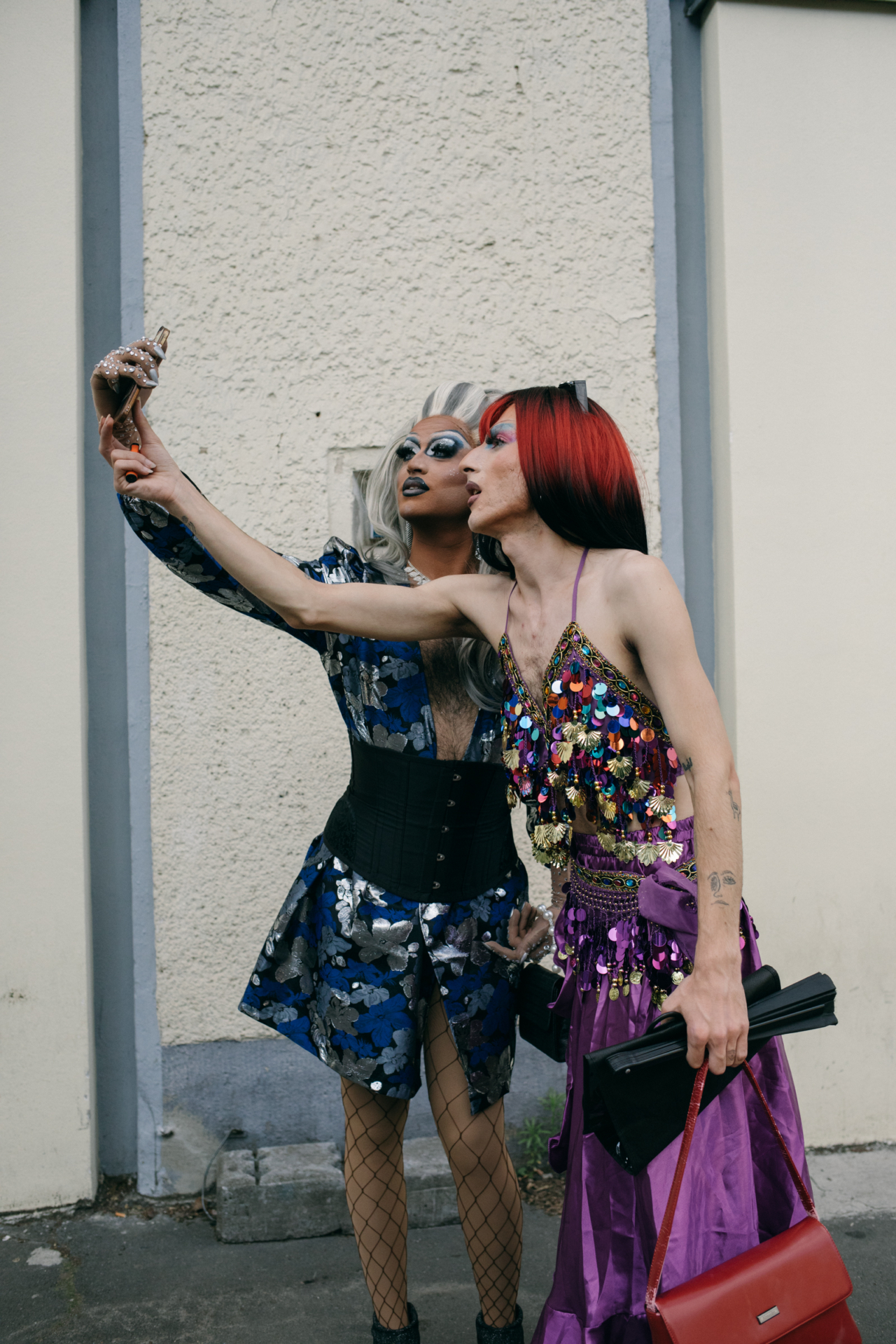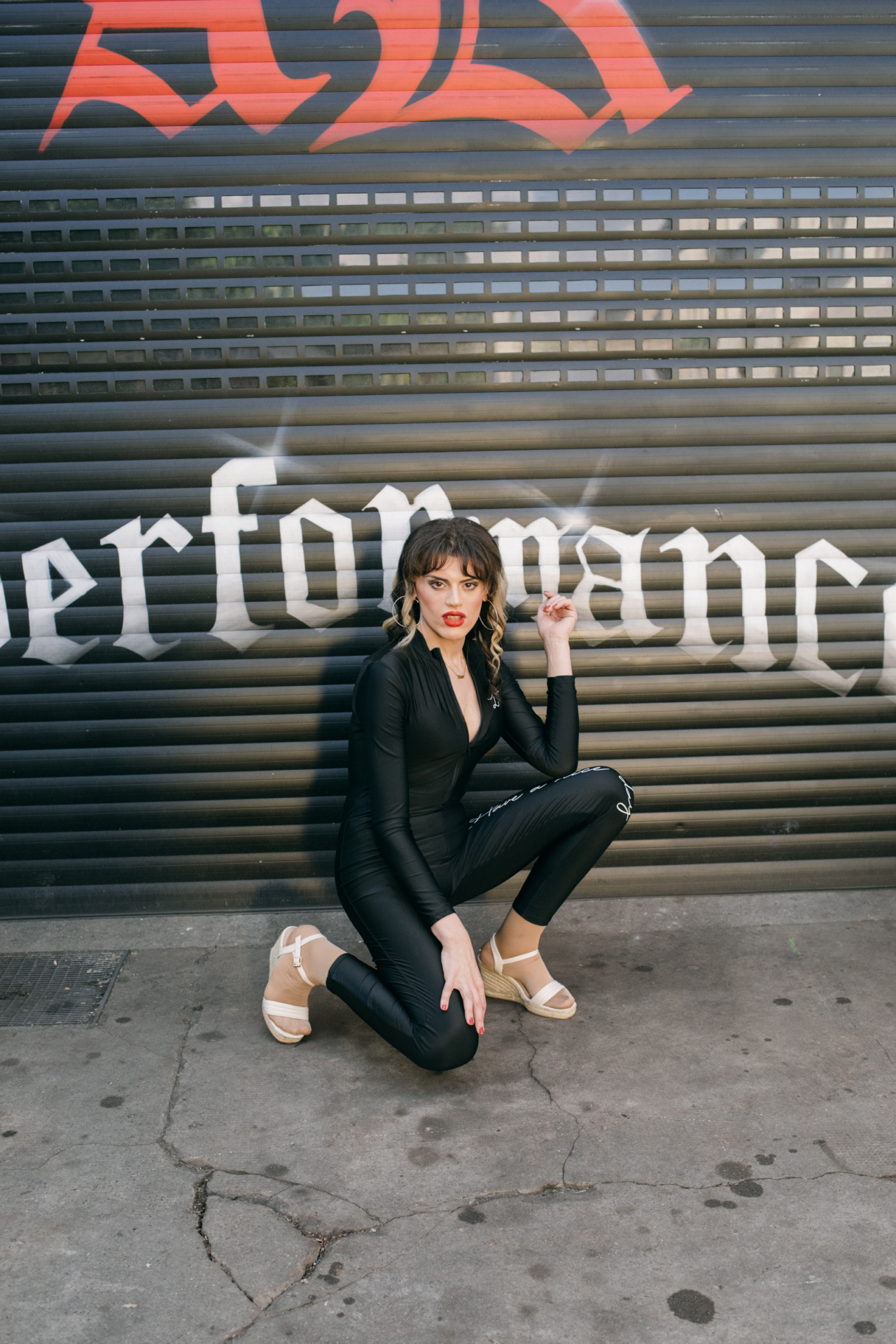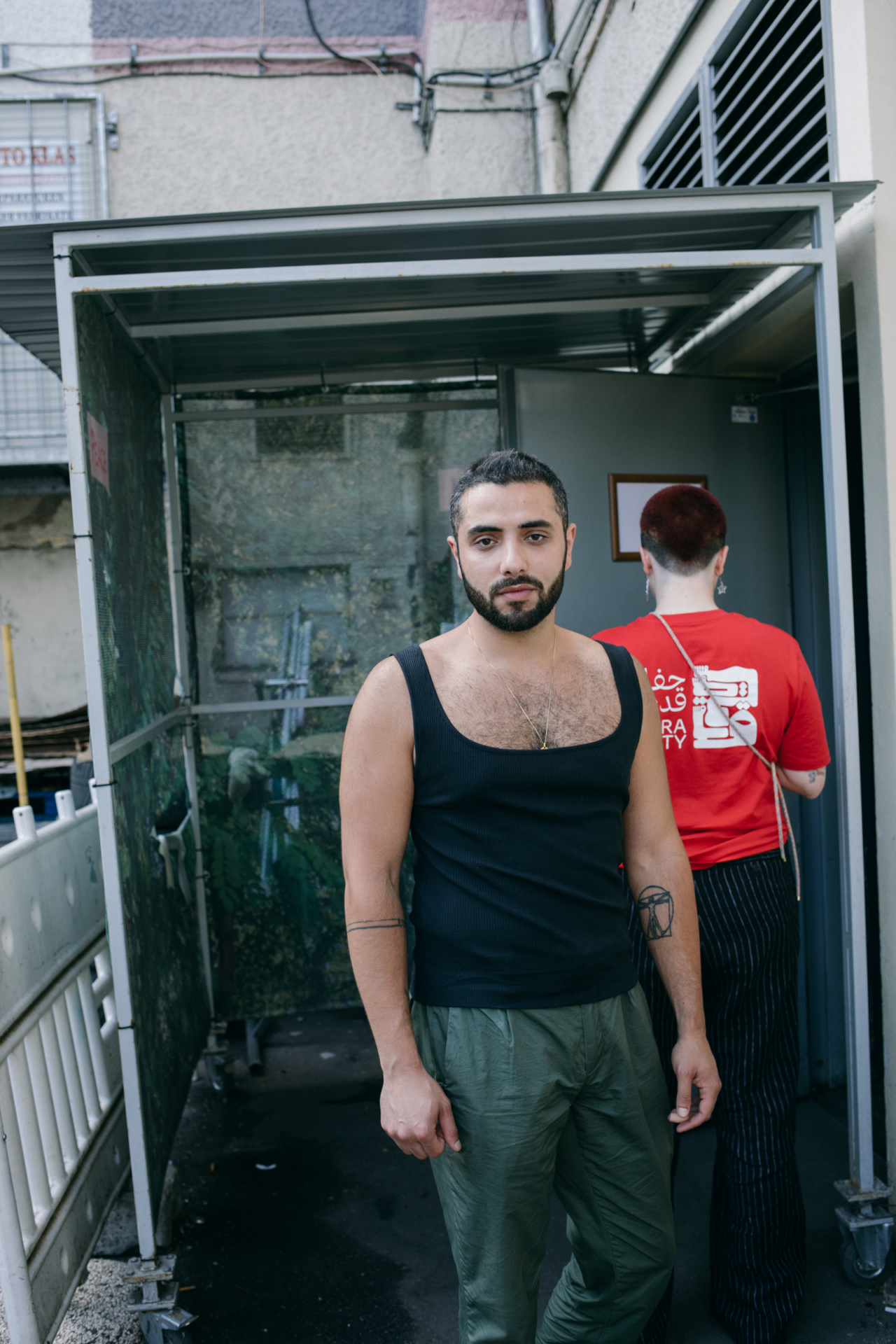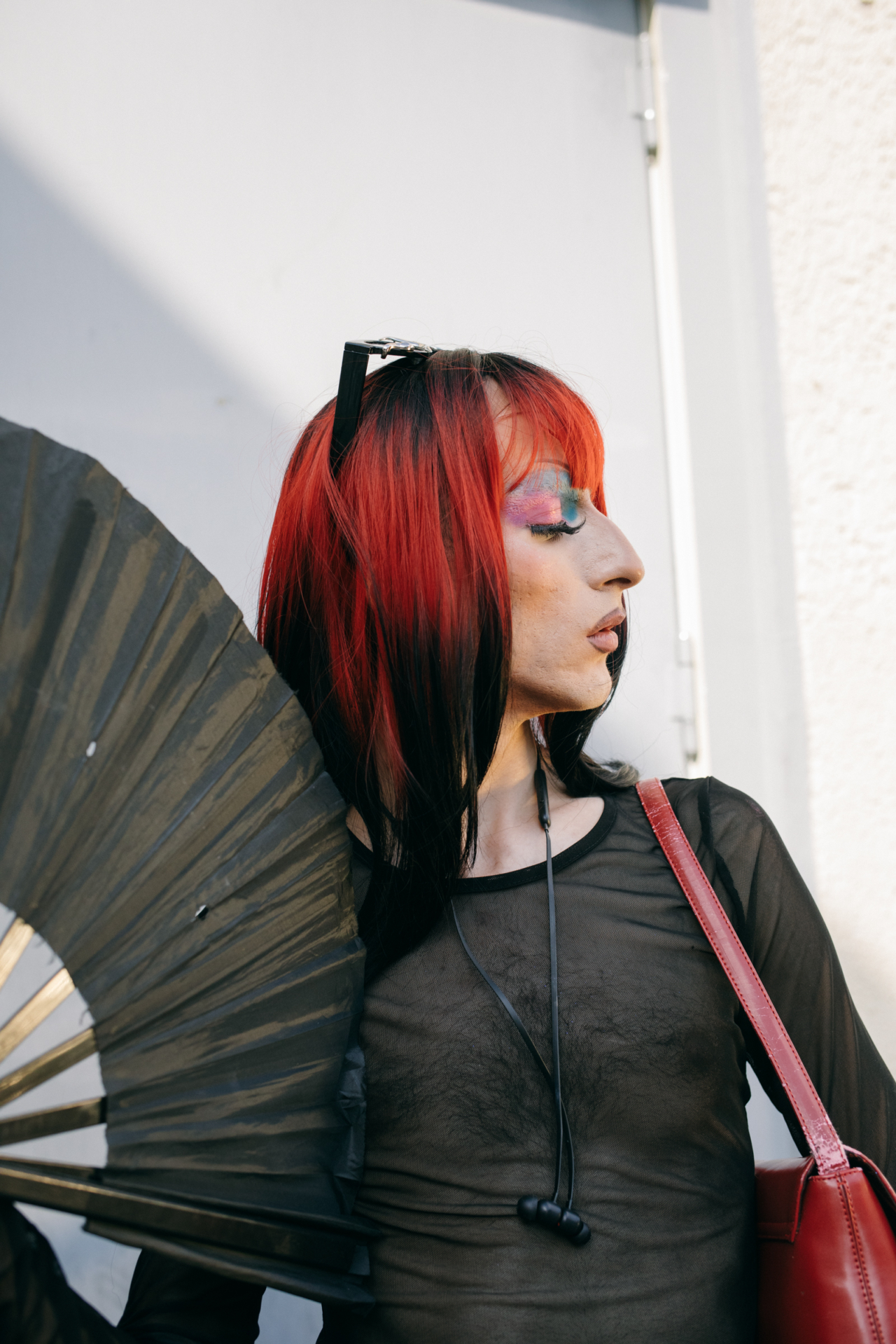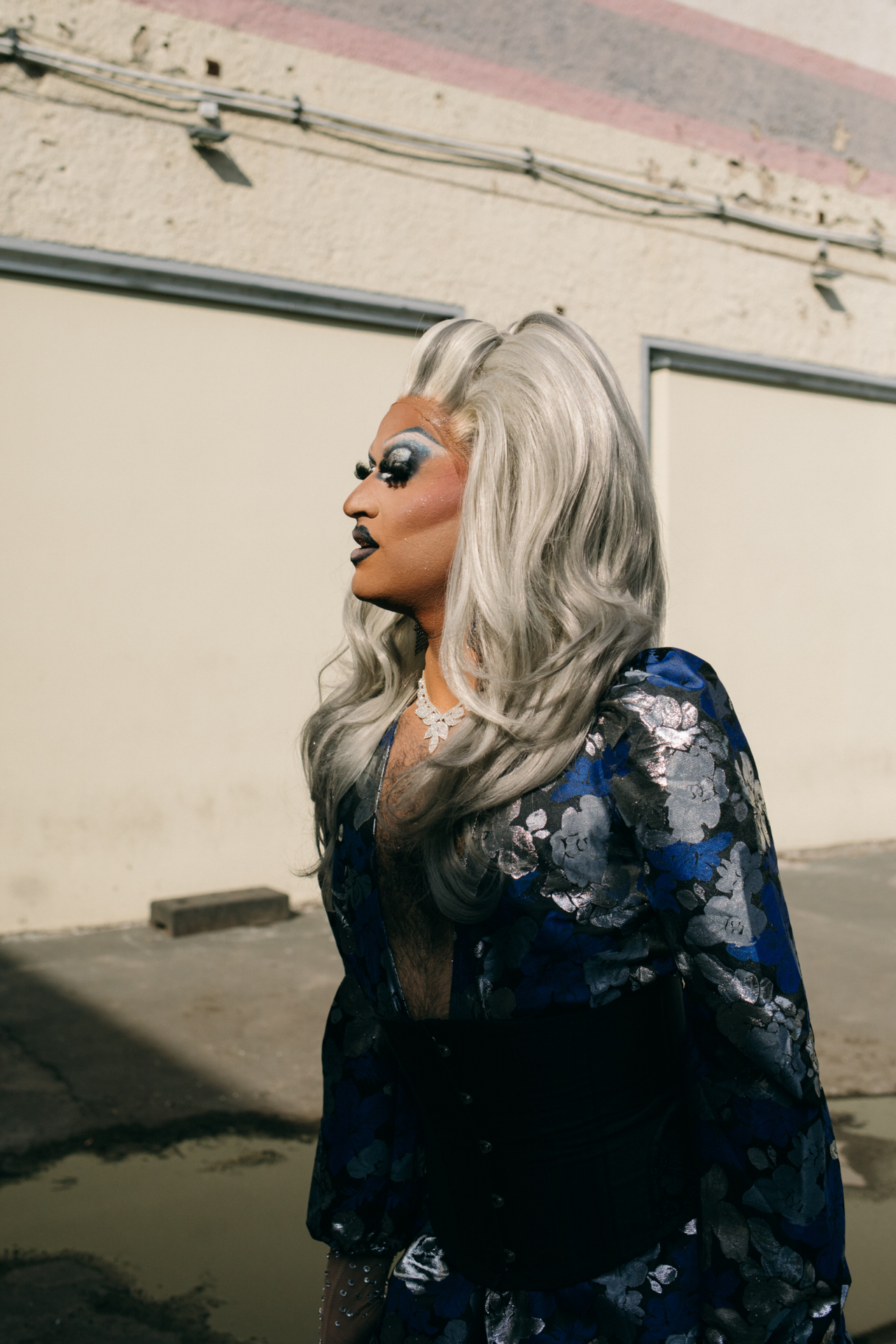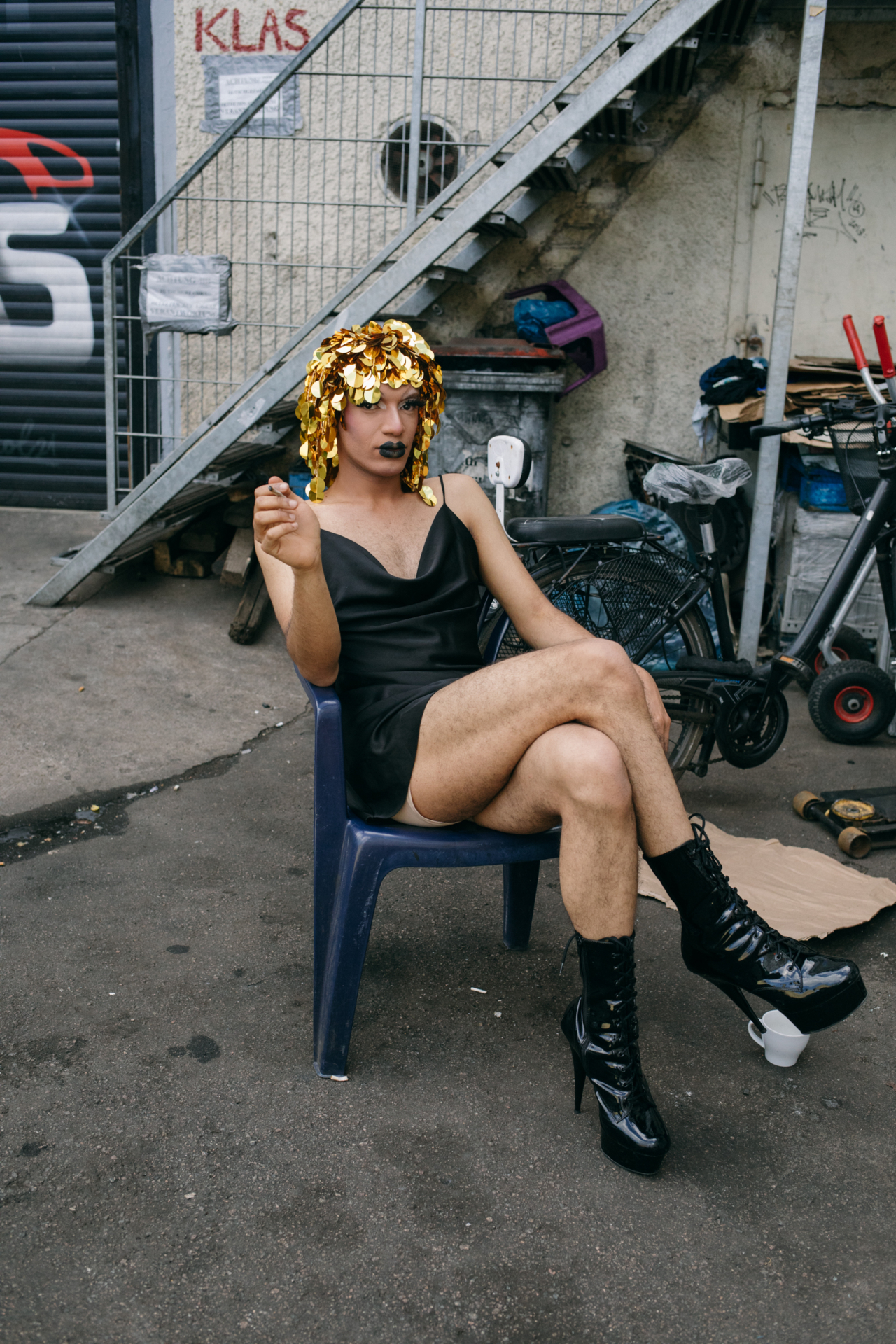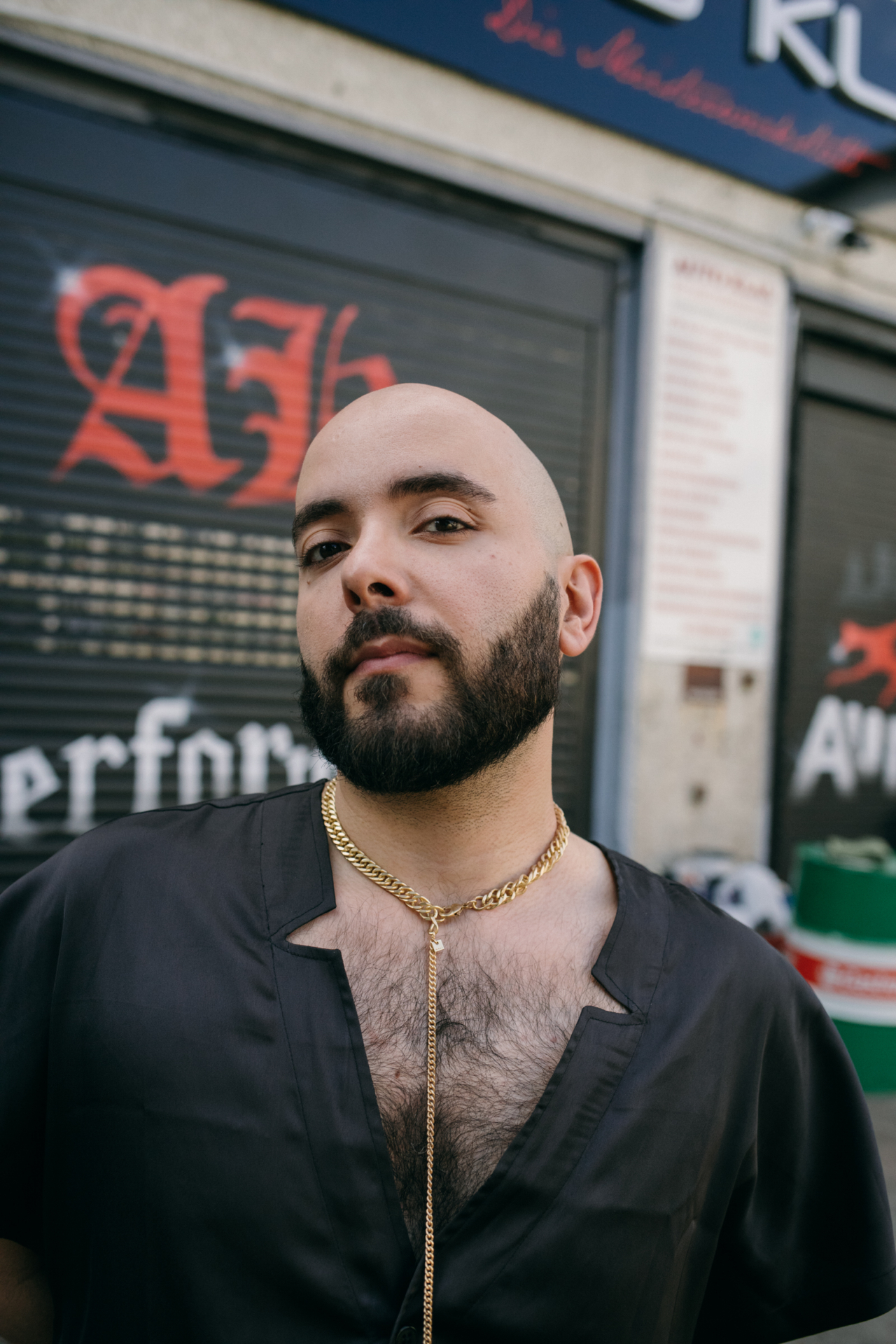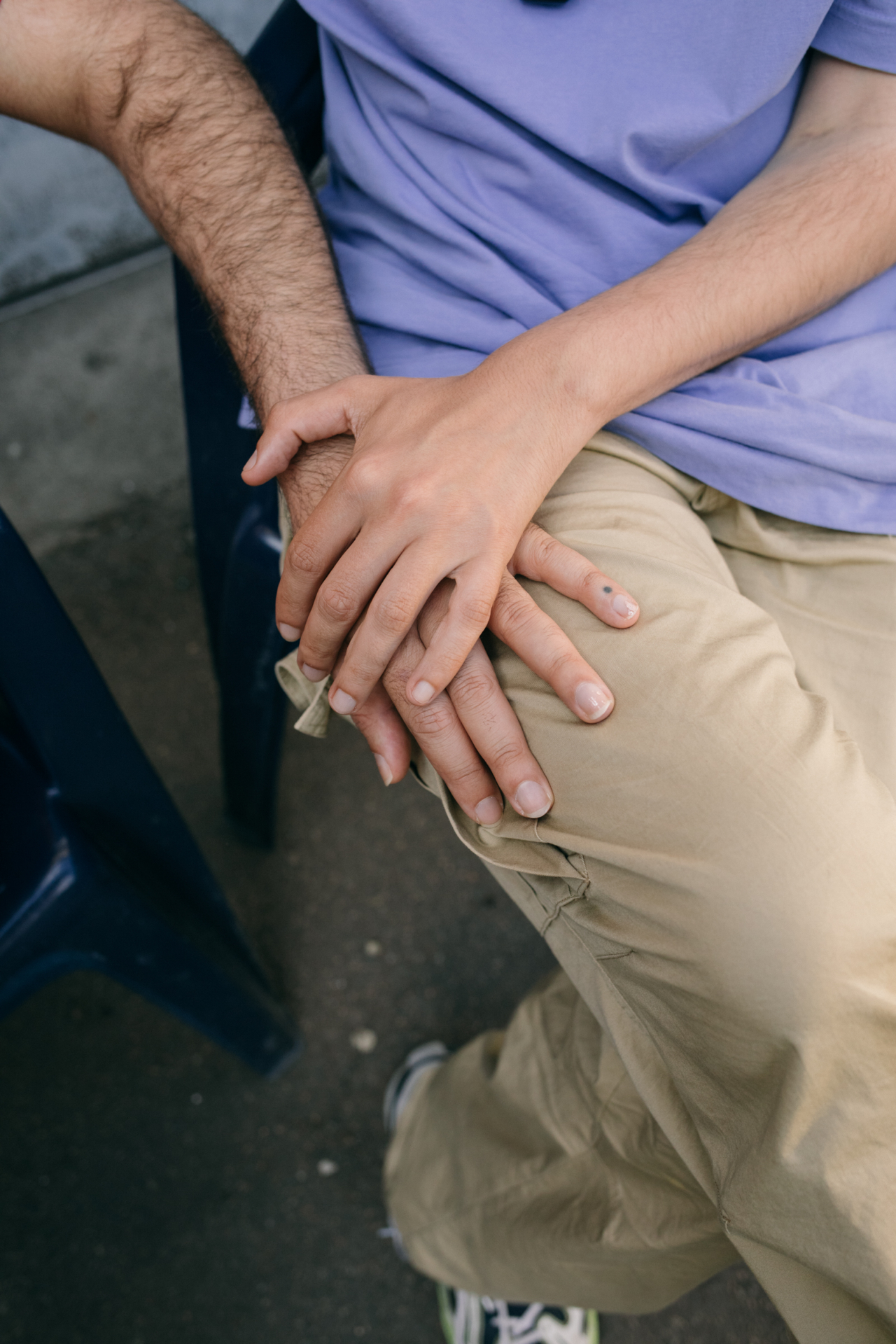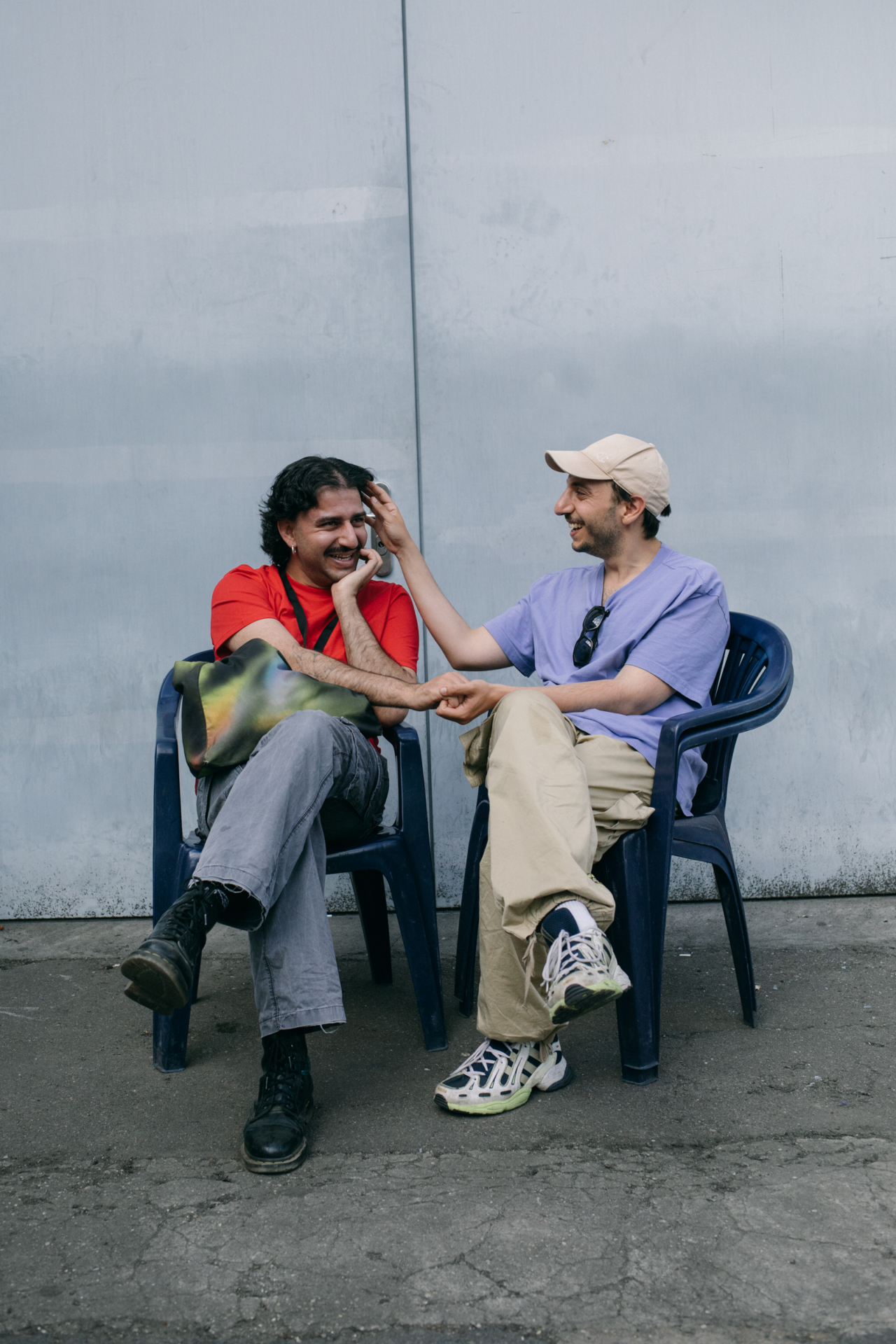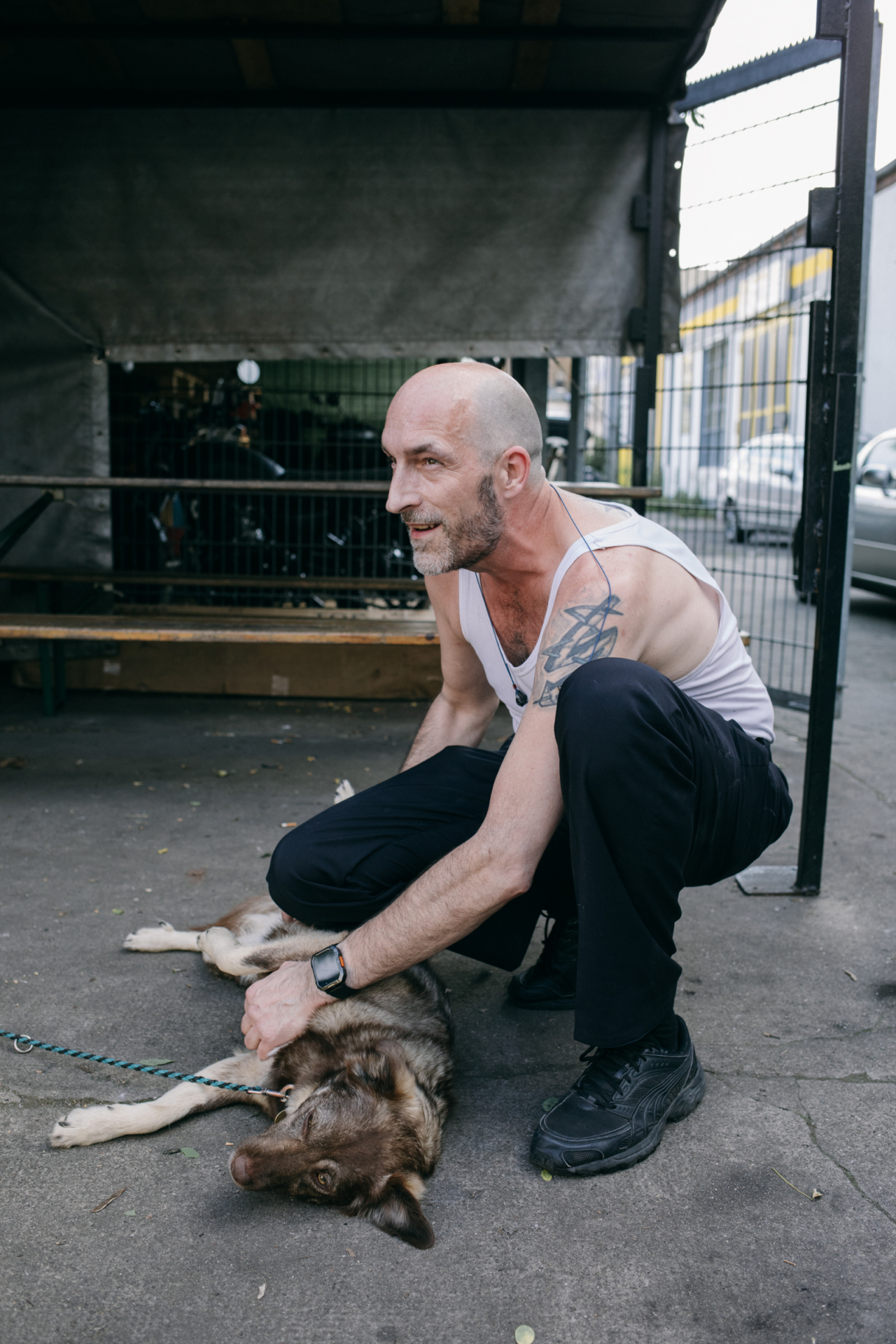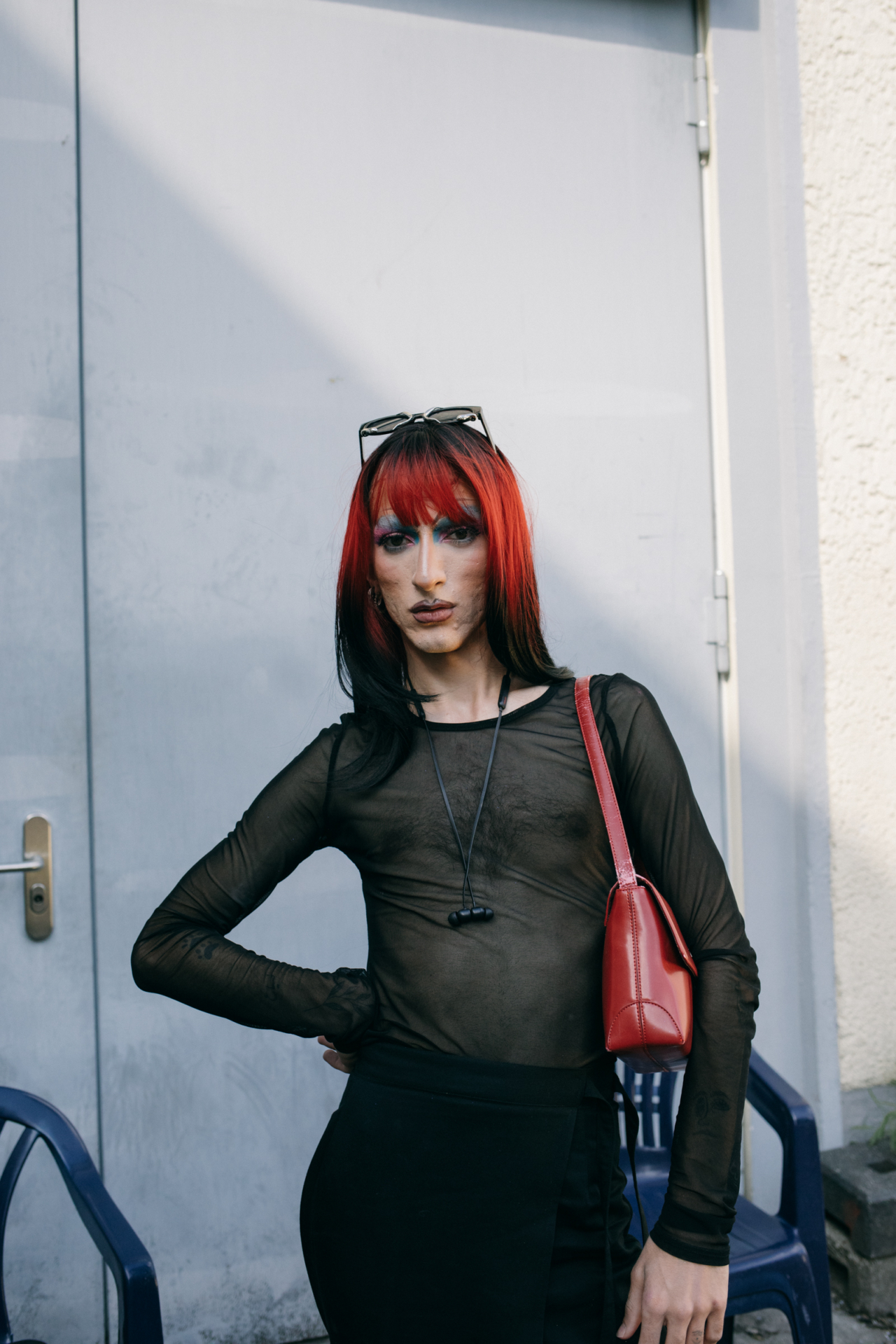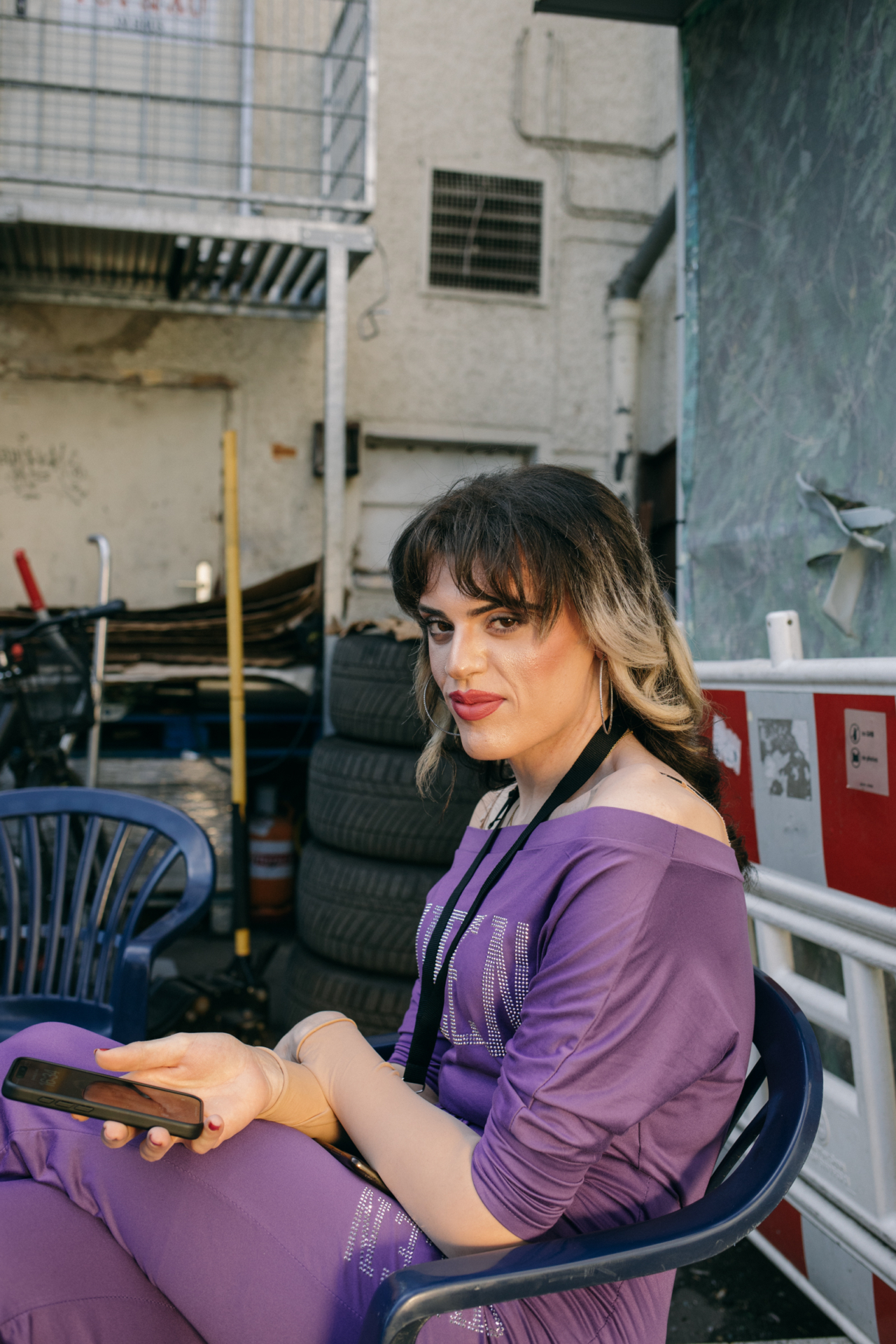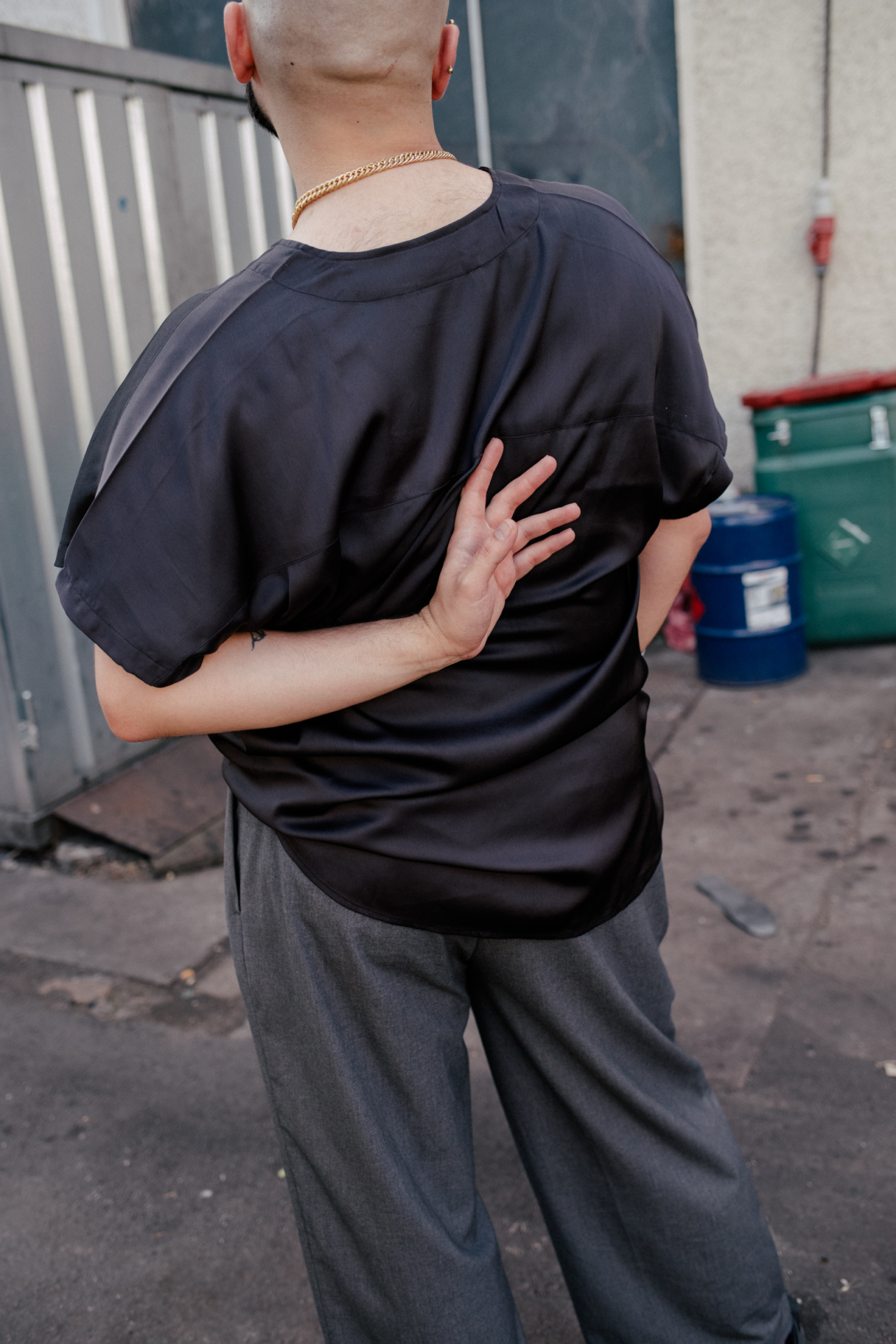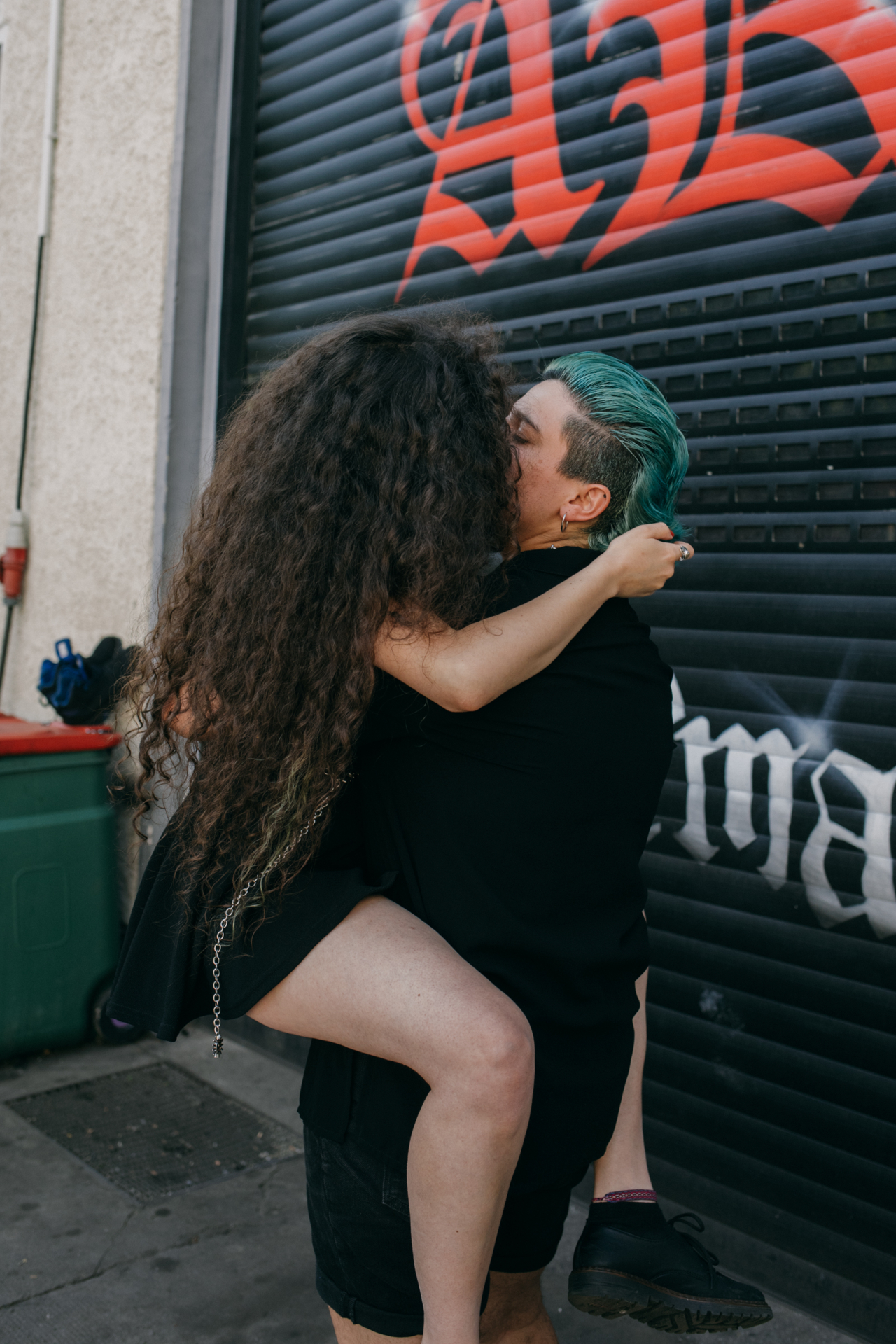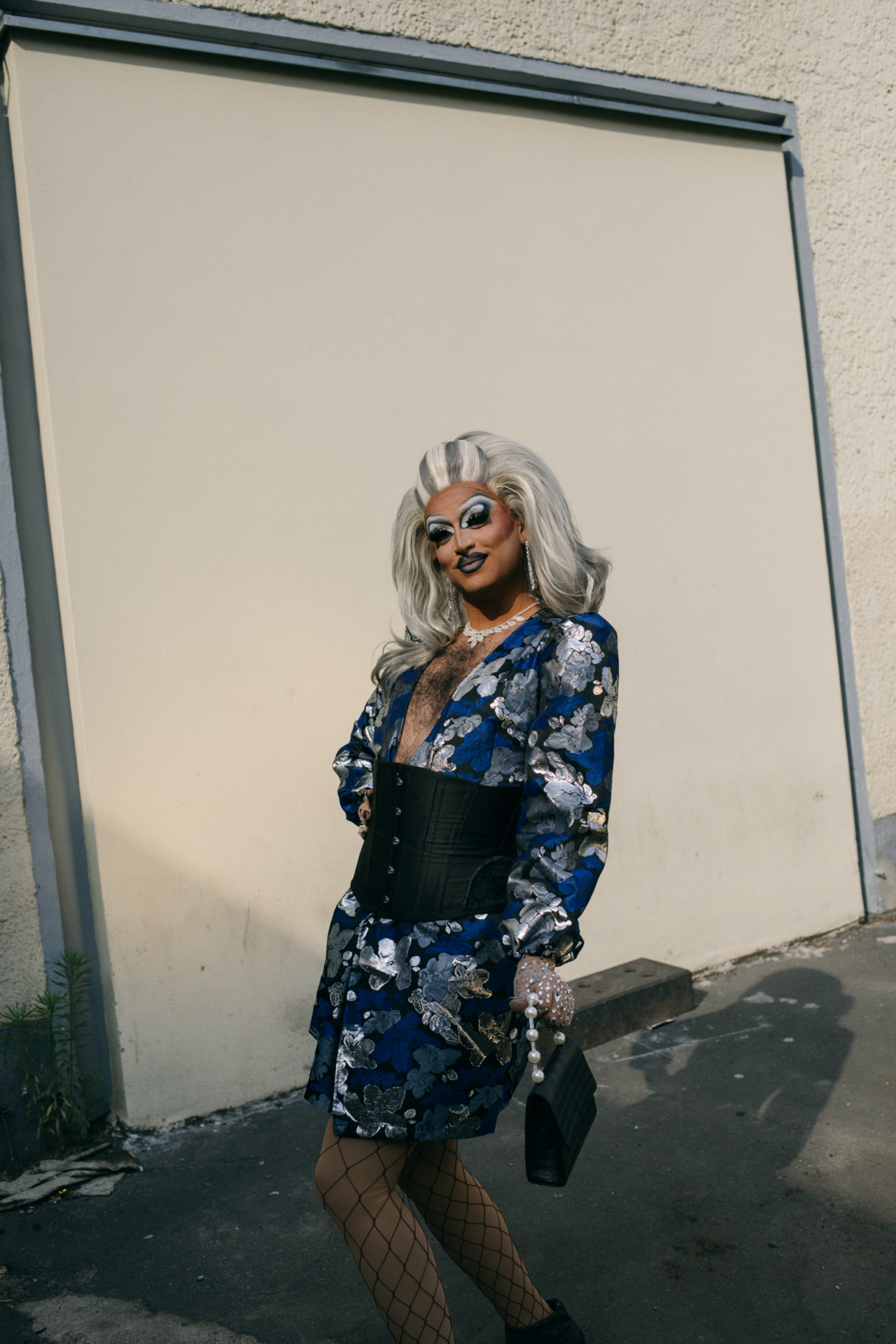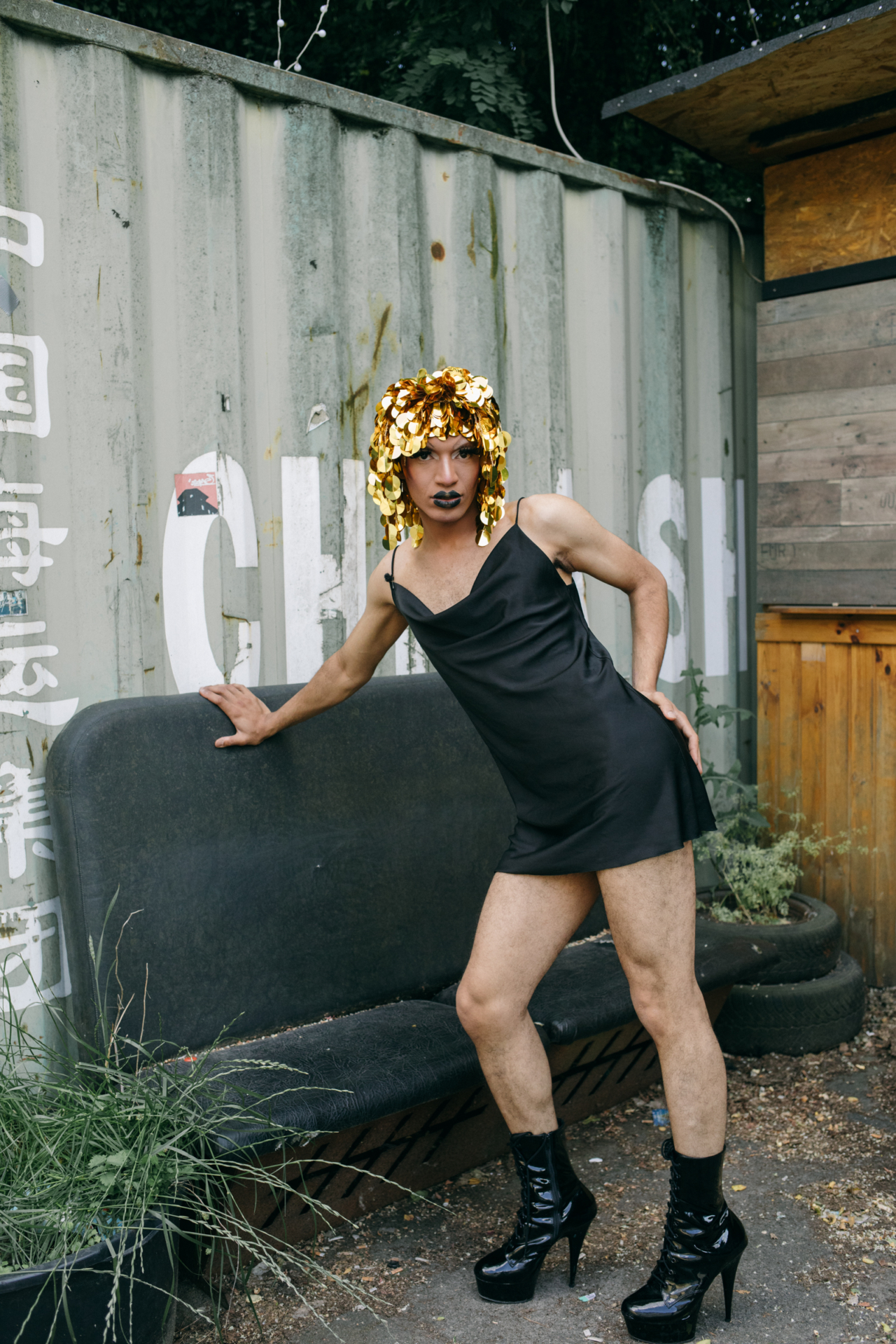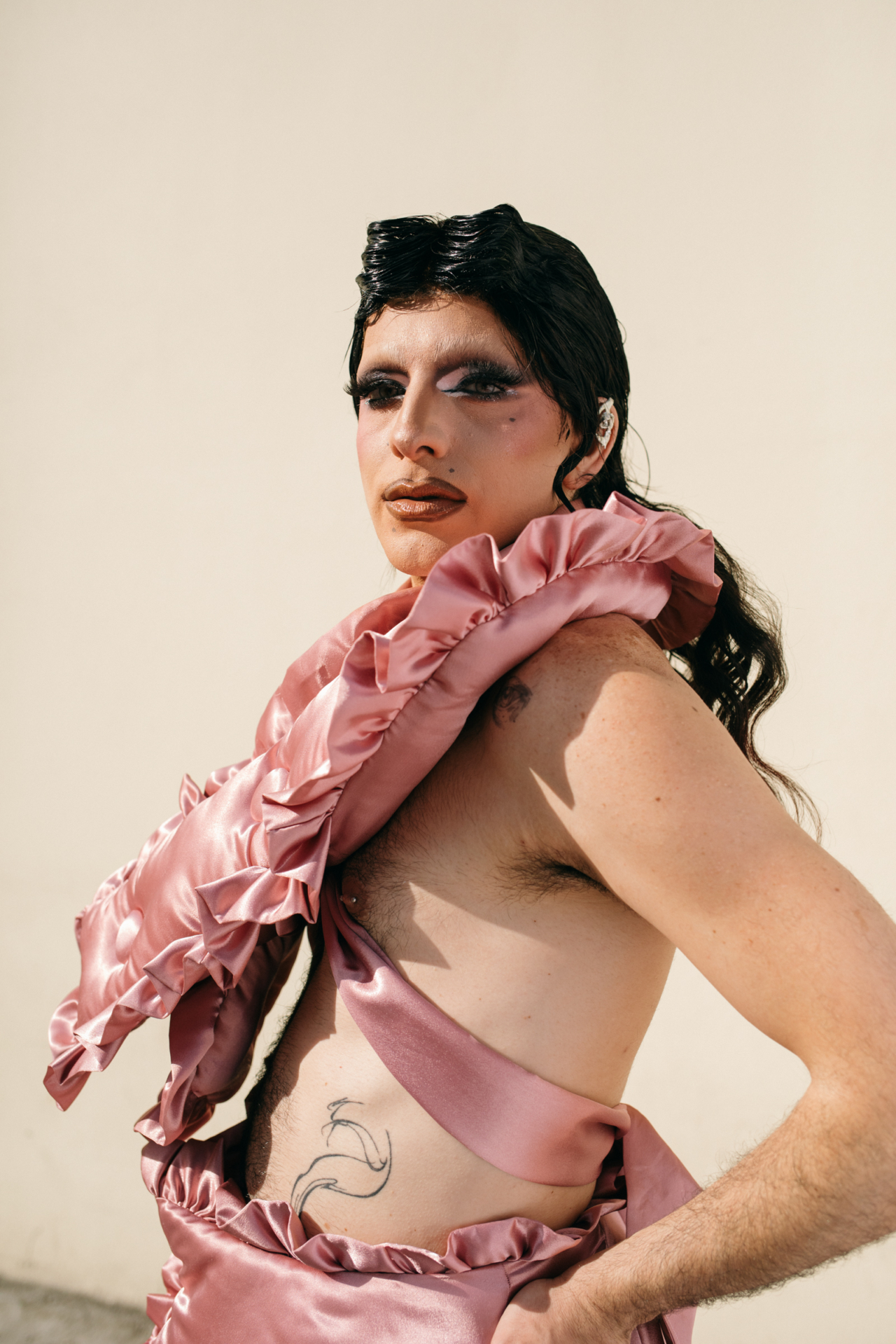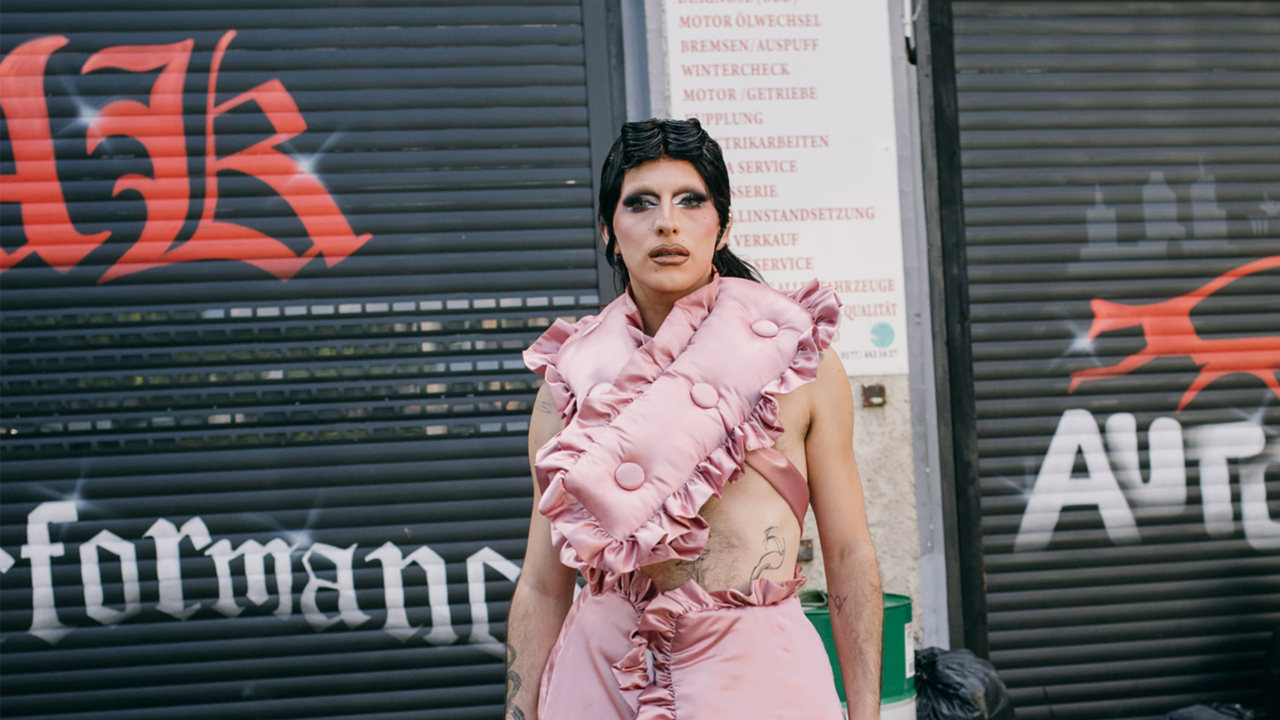
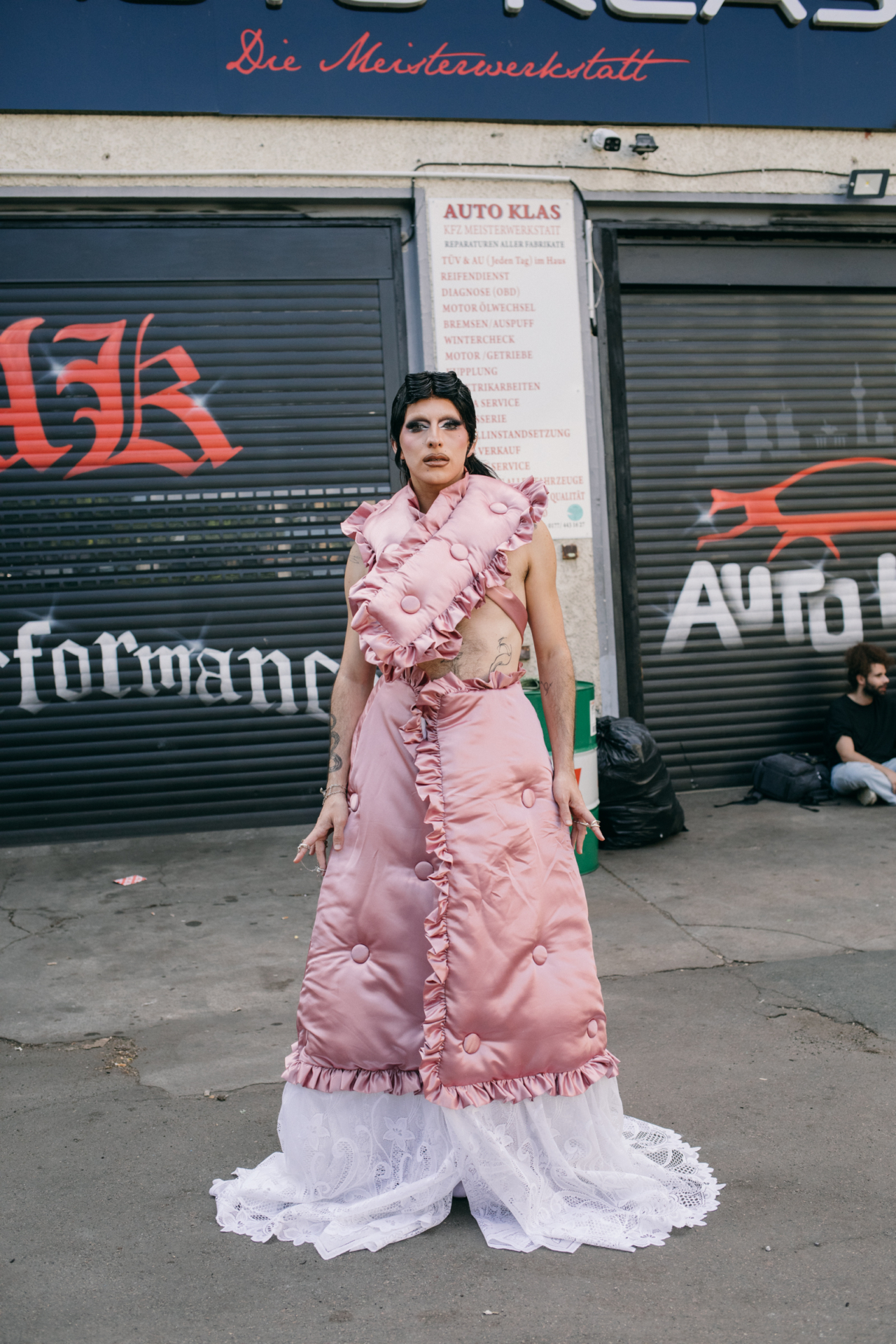
Words by Khaled A.
photographs by marlen mueller
Last weekend, creatives and drag enthusiasts from Berlin and beyond descended on Club Gretchen to celebrate ADIRA, the first-ever Arab* and anti-Orientalist drag festival.
Descriptors like “first,” “Arab,” and “drag” come with an unprecedented responsibility; a duty to represent the diversity of a queer and trans community that’s oftentimes reduced to an imported enemy at home and a fetishized Other by the West. It’s why the organizers behind ADIRA insist on an asterisk after “Arab,” an acknowledgement of the diversity of talent from different religious backgrounds and ethnic communities in Arabic-speaking countries participating in the show.
“When you claim something is the first of its kind, [the risk is to] disregard other people’s spaces or projects that we may have never known about [because of systemic erasure and silencing],” says Palestinian-Syrian cultural practitioner Zain Saleh, ADIRA’s communication and social media manager. “Although we didn’t want to emphasize it as a ‘selling-point,’ we still brought [the space] together against all odds.”
The name, ADIRA, is inspired by the vast lexicon of terms and phrases used by queer Arabs in the Levant. Pronounced “Adeera,” the adjective refers to someone, usually a woman, who is capable and accomplished. Unlike many terms used to target and villainize queer communities, adira is used to describe individuals with a commanding presence and a persistence to achieve their dreams for themselves and others. A similar term would be “mother” in ballroom culture.




“The idea behind ADIRA started as a nostalgic throwback party [that honored] 1980s, 1990s, and early 2000 Arabic pop music,” said Lebanese drag performer Hassandra, who cofounded ADIRA alongside Syrian-German DJ Zuher Jazmati in February 2023. “There are a lot of queer references engraved in the work of Arab pop divas and other performers like Bassem Feghali, so we started including more performances in our events and parties. This is a space to showcase our art, our culture, and come together to support each other.”
Today, ADIRA is a multifaceted space for and by queer and trans Arabs* to come together and simply exist as they are—no pressure, surveillance, or exoticization. Its very existence is radical.
The ADIRA Festival is, first and foremost, a celebration of drag. The aim is to honor the art form in all its iterations, especially through the lens of Arab* drag performers.
For Hassandra, ADIRA is personal. Drag has over the years allowed them to tell stories that are both intimate and representative of their politics. “Drag was an outlet for me where I was letting out a lot of emotions,” they tell Atmos. “It’s a tool I use to reconcile [and make peace] with my past and my memories.”
The festival engages every attendee in a full day of performances, workshops, and panels about drag makeup, queer Arabic literature, and pop music. “I designed everything in a way that connects one stage with another,” Hassandra says. “[The idea is that] you start the day by experimenting with drag yourself, go on to learn about the theory and politics of drag, and end the night by seeing performances.” Saturday’s lineup included Palestinian-Jordanian DJ and filmmaker DumTak, Egyptian filmmaker Mohammad Shawky Hasan, and Omani drag performer Twiga.

“Drag is threatening. It’s systematically free and beyond institutional control.”
But organizing such a safe haven hasn’t been without its challenges. The organizers have had to navigate the censorship and crackdown of pro-Palestinian activism in Germany as well as the legal complications of obtaining visas for invited performers. They have also taken extra security precautions to guarantee both their own safety and that of attendees; as visibly queer and trans people, the security threat is not just from their families, as many would assume because they’re “Arab and closeted,” but also from self-proclaimed Democrats and liberals in the West. The likes of Hassandra, Saleh, and other organizers are also mostly independent cultural workers who rely on freelancing and grants to overcome the socioeconomic conditions shaped by their experiences as Arab creatives and drag performers in the diaspora and home countries.
“If you’re an institutional artist, your work is filtered and censored even before the showcase,” says Hassandra. “Drag is threatening. It’s systematically free and beyond institutional control. We pay for that by not earning too much.”
To Hassandra and Saleh, and the rest of the organizers, ADIRA Festival is purely a labor of passion and love. It’s a self-initiated and organized effort to cultivate a space many have considered unfathomable and impossible. In short, it’s a testimony of the magic that can become reality when we come together to make something by and for ourselves.




Though liberating and groundbreaking, drag can also be a burden. Sustaining a practice that is rooted in nonconformity and resistance in a punitive world is not without risk. Arab* drag performers know this intimately.
Since the launch of their career in 2017, Zuhal—a Lebanese drag performer who performed at ADIRA—has opened many doors and encouraged a thriving drag scene in Beirut. The focus of their message was simple: enable people to be themselves. But the course of their mission has changed drastically in the last two years since a new extremist group, known as the Soldiers of God, started targeting and routinely assaulting queer and trans people in Lebanon.
“Before being invited to ADIRA, I had lost motivation,” says Zuhal. “I had not felt safe to host and perform at shows in the past two years—and I almost ended up quitting drag. The trauma of these attacks, as well as the [2020 Beirut Port] explosion, still live in my body.” With drag as their main source of income, it became impossible for Zuhal to sustain their practice and stay safe as the financial crisis in Lebanon worsened.
Though Zuhal—alongside other Beirut-based drag artists—have found innovative ways to help sustain the Lebanese drag scene, their exceptionalism and persistence shouldn’t be the rule.
As a political tool, drag has been used to reclaim spaces that queer and trans people have historically been excluded from; it has been a vehicle through which to return to land that rightfully belongs to us all—especially the most marginalized of us. It is a tradition that prides itself in making what many of us take for granted today. ADIRA shares this same vision as a reminder of the roots of this practice; of how it can, even for one day, work together towards a world where Western domination of our lives and identities is intentionally uprooted and rejected.
It is no wonder, then, that drag performers are leading and organizing anti-colonial queer movements that demand land liberation and sovereignty, such as Mama Ganuush’s work with Q.U.I.T! in San Francisco and the Bay Area.




ADIRA is taking place in June, also known as Pride month, at a time when Israeli Forces are orphaning, burning, murdering, and displacing Palestinans. “As massacre after massacre happened in Palestine, we delayed promoting the festival for months,” says Hassandra. “We’re all so conflicted about performing at this time. But, again, this is not necessarily a ‘happy’ event. It is a moment to bring us together through drag to help us process the reality we live in. It’s a call for action.”
The urgency of ADIRA, according to Saleh, is to dispel one of the main reasons used to justify the ongoing genocide in Palestine: the decades-long weaponization by Western colonial forces of queer and trans Arab identities through pinkwashing.
In one of ADIRA’s workshops, “How to Avoid Getting Thrown Off Roofs: A Workshop on Pinkwashing,” organizers trace how pinkwashing has been historically used to overshadow popular movements that stand in solidarity with Palestine, especially as it is engraved in the speech of both political figures and everyday conversations. It also centers the work of AlQaws, a Palestinian queer and feminist organization based in Jerusalem. “Besides boycotting, one of the ways to resist the Occupation is by remaining steadfast in your position and not allowing it to be exploited,” said Saleh. “Germany, like other Western countries, prides itself in the safety [it has given us]. But as we, ourselves, have created our safe spaces, it is our duty and right to defend them—and showcase through this Festival what we truly stand for.”
“Just because the entities oppressing me at home stand in solidarity with Palestine, doesn’t mean that I should be against the liberation of Palestinians. As a queer person, I stand with every oppressed group.”
Queer liberation isn’t isolated from other struggles, especially the liberation of Palestine. After all, the Israeli bombs aren’t selective. They kill the very queer and trans Palestinians, whose rights the Zionist state claims to champion. Queer liberation isn’t just about a handful of largely reversible legal rights, and it also won’t be achieved through parades that, though important, offer little more than brief moments of remembrance. It’s an intersectional struggle—queer and trans liberation is dependent on the freedom of all.
“This is proof that we, as queer people, aren’t pinkwashed,” says Zuhal. “Our identities don’t automatically make us Western or make us condemn resistance. And just because the entities oppressing me at home stand in solidarity with Palestine, doesn’t mean that I should be against the liberation of Palestinians. As a queer person, I stand with every oppressed group.”
In this brief moment in time, ADIRA helps us imagine a world through drag that’s feasible for all of us; one where queer and trans Arabs* speak for themselves and on their own terms; where they come together to stand for the liberation of their communities and their land. In this world, we’re not traitors,we’re not spies or agents, and we’re certainly not mysteries. We’re joyful, angry, exhausted, and fearless.




The pink duvet dress was designed by Leonardo Chiocca; and the silver jewelry was designed by HEARTCORE.
Inside ADIRA: Where Queer and Trans Arabs Can Have It All
